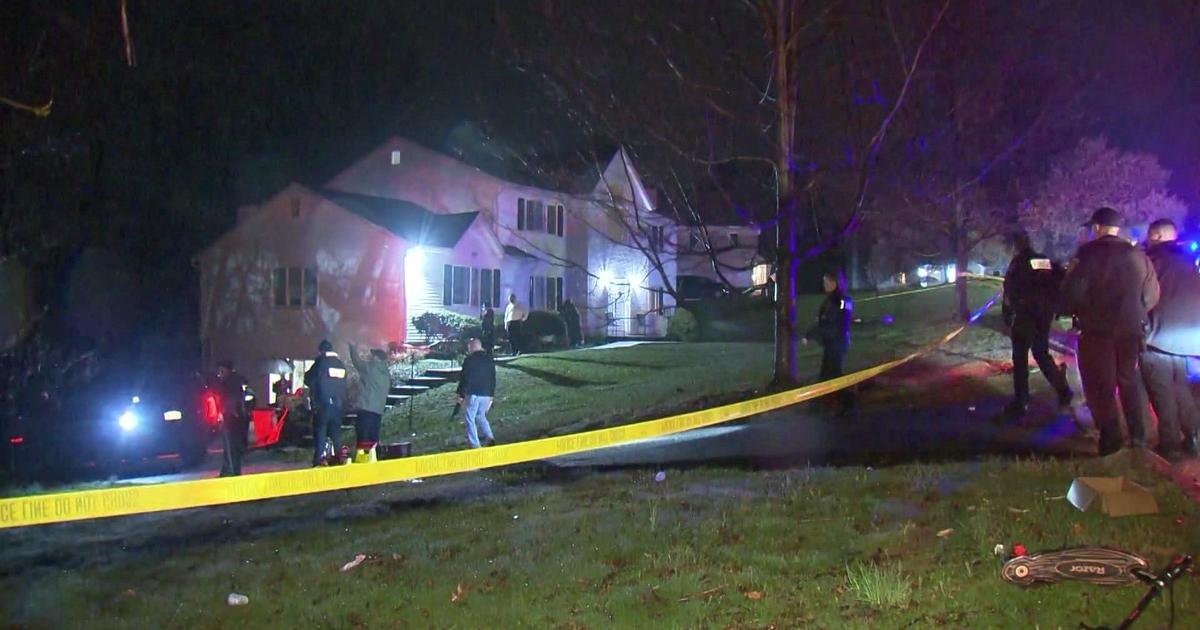Seen At 11: Behind The Scenes As New York's Finest Train To Handle Volatile, Emotional Encounters
NEW YORK (CBSNewYork) -- We often think of police as crime fighters, not psychologists -- but increasingly, the NYPD's interactions are with people in extreme mental distress.
On Friday, CBS2's Maurice DuBois went behind the scenes at the police academy where new training pits actors against officers as they re-learned how to handle volatile encounters with emotionally disturbed people -- or EDPs.
In one training exercise, actors portrayed a couple who got into a fight.
"I worked all (expletive) day, all right?" the man says.
The man portrayed a veteran with PTSD who owns a bodega, the woman his third wife.
"I can't believe we have to go through this again," she said.
And the situation continued to escalate.
CBS2's DuBois joined police officers during the exercise -- he was trained as a responding officer.
"How you doing? I'm Officer DuBois," he said introducing himself.
"Hey Officer DuBois, what are you French?" the man responded.
"Officer DuBois'" gut reaction may be to punch the guy, but he's learned that his response can either escalate the situation or diffuse it.
"Whatever you need, man," DuBois told the bodega owner. "How's everything?"
It's all part of the NYPD's 'Crisis Intervention Training' for patrol officers.
Dr. Tracie Keesee is the deputy commissioner of training.
"Our vision for them to have a really good understanding of folks that have mental illness," Dr. Keesee explained.
The four-day course includes role play between actors portraying mentally ill citizens, and officers learning how to deal with them.
"Eighty percent of what we're doing is listening," Lt. Mark Turner explained. "Remember, when you're emotions are high, your rationale is low."
Every year approximately 130,000 calls involving emotionally disturbed people are made to 911.
"One in five New York adults meet the criteria for diagnosable mental illness," Gary Belkin of the Department of Mental Health and Hygiene explained.
While the vast majority of calls do end peacefully, some have not.
Over the years, police have tried a variety of tactics to deal with the emotionally disturbed.
In 1984, CBS2 reporter and former NYPD detective Chris Borgen demonstrated a metal restraining pole with handlebars that was known as the psycho bar.
In 2007, Dustin Grose -- a schizophrenic -- said police forced him into a 'mesh restraining device.'
"I was wrapped up in like a blue mat," Grose recalled. "I just wished that they kind of empathized with me a little more," he said.
And in 2016, the highly publicized case of Deborah Danner -- a mentally ill woman -- who was killed by police in her home, forcing the department to re-evaluate procedures.
"I would never forgive them because she didn't have to die," said Danner's cousin Wallace Cooke, a former NYPD officer. "Did I run into mental illness? Plenty of them. How did I handle it? All you have to do is show people a little kindness."
On Friday, the training incorporated both kindness and empathy.
"That someone could be a functioning person and have a family and he happy, but have a crisis periodically. That's a really important lesson," said Susan Herman, NYPD Deputy Commissioner of Collaborative Policing.
It's a lesson that's taught to the officers by real people living full lives, including dealing with mental illness.
"We depend on you to protect us even, if we don't know we want you to protect us," one man said.
Since the course began in 2015, more than 5,000 NYPD officers have been trained.
So is it working?
"He looked at me and was like, 'I'm done, I'm fed up," said Officer Jovonna Rodriguez.
Officer Rodriguez -- with the 109th precinct -- said it helped her save a suicidal man's life.
"I know I did a good job that day," she said.
So did "Officer DuBois'" partners back in the bodega scene.
Sgt. Kenneth Jefferson and Officer Raul Rodriguez not only calmly talked down the irate owner -- they got him to agree to go for help.
They prevented things from going really bad by keeping him away from the back closet, and the loaded rifle inside.
The city's Inspector General recently criticized the NYPD, saying it doesn't have an efficient system to dispatch the officers who've received this training.
The NYPD said its goal is to train the entire patrol force.
In another unique aspect of the training, officers wear headsets that allow them to feel what it's like to hear voices in their heads.



